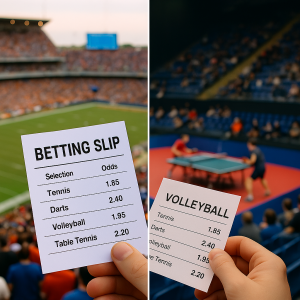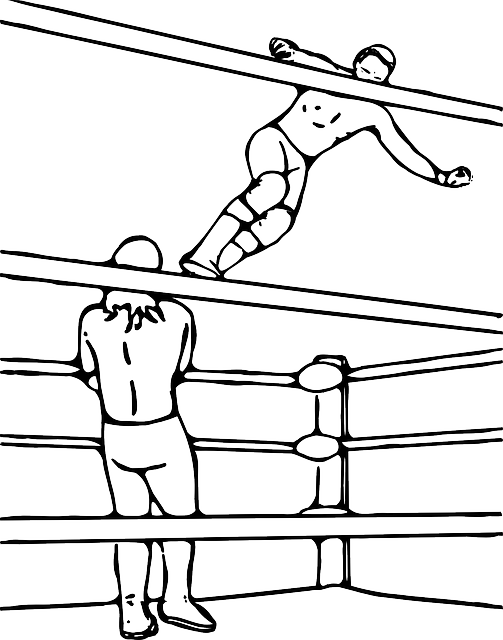Hidden Gold: Why Niche Sports and Markets Offer Better Betting Opportunities
 Sports betting has exploded in recent years. Big leagues like the NFL, NBA, Premier League, and Champions League draw most of the attention, and naturally, most bettors flock to them. But what many overlook is that these same popular markets are also the hardest to beat. The sharpest bettors, the sportsbooks’ most sophisticated algorithms, and mountains of data all converge on mainstream events. The result? Lines are tight, edges are slim, and value is hard to find—pushing some players to explore alternative options such as non UK casinos accepting UK players where betting opportunities can feel less crowded.
Sports betting has exploded in recent years. Big leagues like the NFL, NBA, Premier League, and Champions League draw most of the attention, and naturally, most bettors flock to them. But what many overlook is that these same popular markets are also the hardest to beat. The sharpest bettors, the sportsbooks’ most sophisticated algorithms, and mountains of data all converge on mainstream events. The result? Lines are tight, edges are slim, and value is hard to find—pushing some players to explore alternative options such as non UK casinos accepting UK players where betting opportunities can feel less crowded.
That’s why serious bettors are increasingly turning their attention to smaller, less-publicized sports and markets. They may not have the glamour of Sunday Night Football or the NBA Finals, but they can quietly provide much better opportunities. Let’s break down why niche sports and markets can be a smarter path.
1. Less Efficiency, More Mistakes
Sportsbooks are businesses. They allocate their resources based on where they make the most money. That means popular sports like football, basketball, and soccer get the sharpest lines and the most attention from oddsmakers. By contrast, smaller sports—such as volleyball, table tennis, handball, darts, or even lower-division soccer—don’t receive nearly the same level of scrutiny.
Because of that, odds in these markets are often less efficient. With fewer analysts setting lines and less public money shaping them, sportsbooks make more mistakes. A bettor who follows these sports closely or takes the time to learn can often spot mispriced odds that wouldn’t exist in the major leagues.
2. Lower Public Influence
Public money heavily influences lines in major sports. When millions of casual fans bet on their favorite teams or players, the odds often shift in ways that don’t reflect the true probabilities. Sportsbooks know this and adjust to protect themselves. But the result is a market that rarely offers true value.
In niche sports, public money is minimal. Odds move mainly from sharper action, not emotion-driven fans. This creates an environment where well-researched bets hold their value longer and aren’t quickly corrected by massive waves of casual wagers.
3. Data Gaps Work in Your Favor
For big sports, sportsbooks and professional bettors have endless data: advanced stats, player-tracking metrics, betting trends, and historical analysis. The playing field is level because everyone has access to the same depth of information.
Smaller sports don’t have that. In fact, some barely have publicly available statistics beyond scores and win–loss records. While this might sound like a disadvantage, it’s actually an opportunity. Bettors who dig deeper—following local news, streaming minor leagues, or tracking player form manually—can uncover insights the sportsbooks don’t account for. When oddsmakers have thin data, even modest research can create a serious edge.
4. Specialization Beats Generalization
Trying to master the NFL or Premier League means competing against thousands of other bettors, many of whom dedicate their careers to the same goal. The competition is brutal, and even if you’re sharp, it’s tough to stand out.
Niche markets, on the other hand, reward specialization. Suppose you commit to learning everything about, say, Scandinavian hockey, women’s tennis, or South American volleyball. In that case, you can build expertise that far surpasses what the books and most bettors bring to the table. That specialization creates an edge that compounds over time.
5. Prop Bets and Alternative Markets
Another overlooked area is props and alternative markets. In major sports, side bets such as player props, first-period totals, or corner kicks often receive less attention from sportsbooks than the main lines. That creates openings similar to those in niche sports.
In lesser-known sports, props can be even softer. A bettor who understands how a specific team plays—fast and aggressive, or slow and defensive—can use that knowledge to exploit markets like total points, first-half spreads, or even live-betting situations.
6. Lower Limits Can Be a Good Thing
One reason sportsbooks don’t worry much about smaller sports is that they limit how much you can bet. For casual bettors, this is actually an advantage. While you might not be able to stake thousands, you can consistently earn small but steady profits without attracting unwanted attention. Betting smaller amounts on softer markets is often more sustainable than swinging big on sharp, heavily scrutinized games.
7. Examples of Hidden Gold
To see how this works in practice, consider a few real-world cases:
- Table tennis during the pandemic: When major sports were shut down, table tennis became one of the only options. Bettors who quickly learned the players and tendencies found enormous value before sportsbooks adjusted.
- Women’s tennis: Upsets are more common than in men’s tennis, and markets often misprice rising players or undervalue fitness factors in long tournaments.
- Lower-division soccer: While Premier League lines are razor sharp, third- or fourth-tier divisions in Europe often have soft totals and handicaps because sportsbooks don’t monitor them as closely.
These aren’t get-rich-quick opportunities, but they demonstrate how hidden value often lies beyond the spotlight.
8. The Risks to Watch
Of course, betting on niche sports isn’t without risk. Limited information means it’s easier to fall victim to incomplete data or overconfidence. Smaller markets can also be prone to irregularities, including match-fixing scandals, which are more common in areas where finances are tight. And because limits are lower, scaling up profits takes patience.
The key is to approach these opportunities with discipline: keep records, bet responsibly, and focus on building a long-term edge rather than chasing quick wins.
Final Thoughts
The sports betting industry thrives on attention. Big games dominate headlines, and sportsbooks pour their resources into making those markets nearly unbeatable. But value isn’t found in the spotlight—it’s often hidden in the corners. Niche sports and alternative markets may lack glamour, but they offer something far more valuable: opportunities to capitalize on mistakes.
For bettors willing to do the work, these overlooked areas can quietly deliver steady, sustainable profits. The gold is out there—it’s just not where most people are looking.




